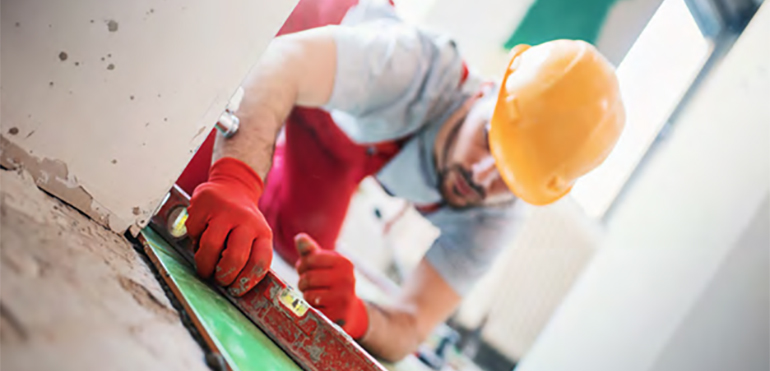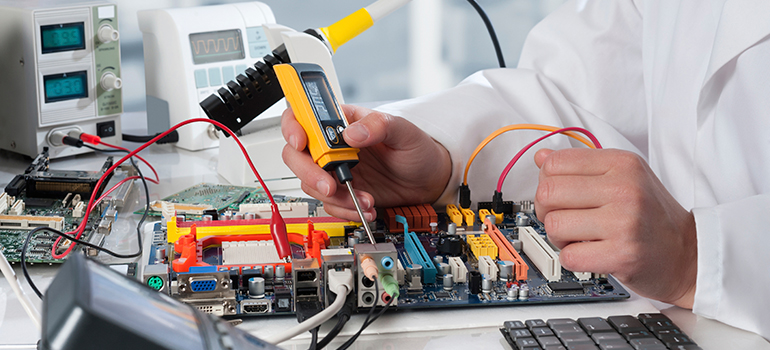Floor Moisture Forensics

Three Ways to Save Money
29 June 2021
When installing flooring over concrete, it's essential to understand that all concrete contains moisture. Since concrete is highly porous, many factors can contribute to excess moisture. These factors include but are not limited to:
- Lack of or improperly functioning vapor retarded beneath the concrete
- Too much water in the concrete mix
- Not enough curing and drying time
- No HVAC climate control of the area
Since all concrete contains moisture, it is necessary to determine the moisture vapor emissions and relative humidity percentage of the concrete prior to flooring installation. Floor moisture forensics can determine the level of moisture in the concrete and avoid moisture issues before they arise, in turn saving you money.
Every flooring manufacturer has specific moisture requirements for the concrete subfloor before installation. To determine the concrete subfloor conditions, floor moisture forensics is performed by testing for floor moisture levels according to industry standards, including ASTM F1869-16 — standard test method for measuring the moisture vapor emission rate of concrete — and ASTM F2170-19a (previous standard: ASTM F2170-16) — standard test method determining the relative humidity in concrete floor slabs using in-situ Probes. Testing for moisture levels ensures you will choose the correct product and material for your flooring
Measuring the moisture is crucial to having successful and sustainable flooring without needed constant repairs and costs. Here are three ways floor moisture forensics can save you money:
- Prevents Flooring Removal and Replacement
Moisture in concrete and subfloors, as well as using the wrong installation products, can lead to adhesive bond failure, resulting in a loss of strength; adhesive re-emulsification; mildew or mold; odors; water trapped under the flooring, causing dampness in carpet; and warping/curling of the floor material. These issues can lead to a lot of costly issues.
The best way to save money on your flooring is to make sure there isn't an issue, to begin with. Floor moisture forensics can evaluate the current moisture conditions of concrete slabs, ensuring you choose the right material and products for your flooring. This cuts down on any costs that come with needing to repair or replace the installed flooring. - Reduces Safety Issues
Floors containing moisture are prone to gaining unstable surface qualities such as curling, warping, and breaking. These surface dangers increase the chance for people to slip, trip, and fall—resulting in injuries and insurance claims. It can also produce mildew or mold if trapped for too long, which can lead to health concerns.
By testing your flooring using floor moisture forensics, you eliminate the risk of significant safety issues down the road due to moisture damage. Knowing the floor moisture early on also reduces the health risks presented by exposure to harmful substances such as mold and mildew. - Limits Insurance Claims
Flooring damaged due to excessive moisture can cause many issues, from excessive mildew and mold to floor material completely warping to a number of other issues discussed. The result of damage and these issues typically lead to owners and occupants filing insurance claims, resulting in additional costs, excessive time to make a claim, and downtime in getting the property repaired and back to normal. This entire process can be costly and frustrating. Floor moisture forensics can help owners identify issues upfront to prevent potential damage and consequently avoid the process of insurance claims.
Damages to flooring due to floor moisture can cost hundreds to thousands of dollars in repairs. It can also cost upwards of the same amount for any insurance claims filed for property damage, slips, trips, and falls. The best way to save money on floor repairs is by making sure no repairs will be needed due to floor moisture. Floor moisture forensic testing evaluates how products meet and exceed quality, safety, sustainability, and performance standards by performing the industry's recommended tests

Tom Valenzano,
Branch Manager
Tom Valenzano has more than 20 years' experience providing building construction testing services and consultation. As the branch manager for Intertek's MT Group for the New Jersey market, Tom oversees all aspects of field and lab testing services, as well as office administration and operations. Tom's expertise is in specialty testing such as construction monitoring, floor flatness, floor moisture, and ground-penetrating radar. He holds an associate's degree in civil engineering and technology.


